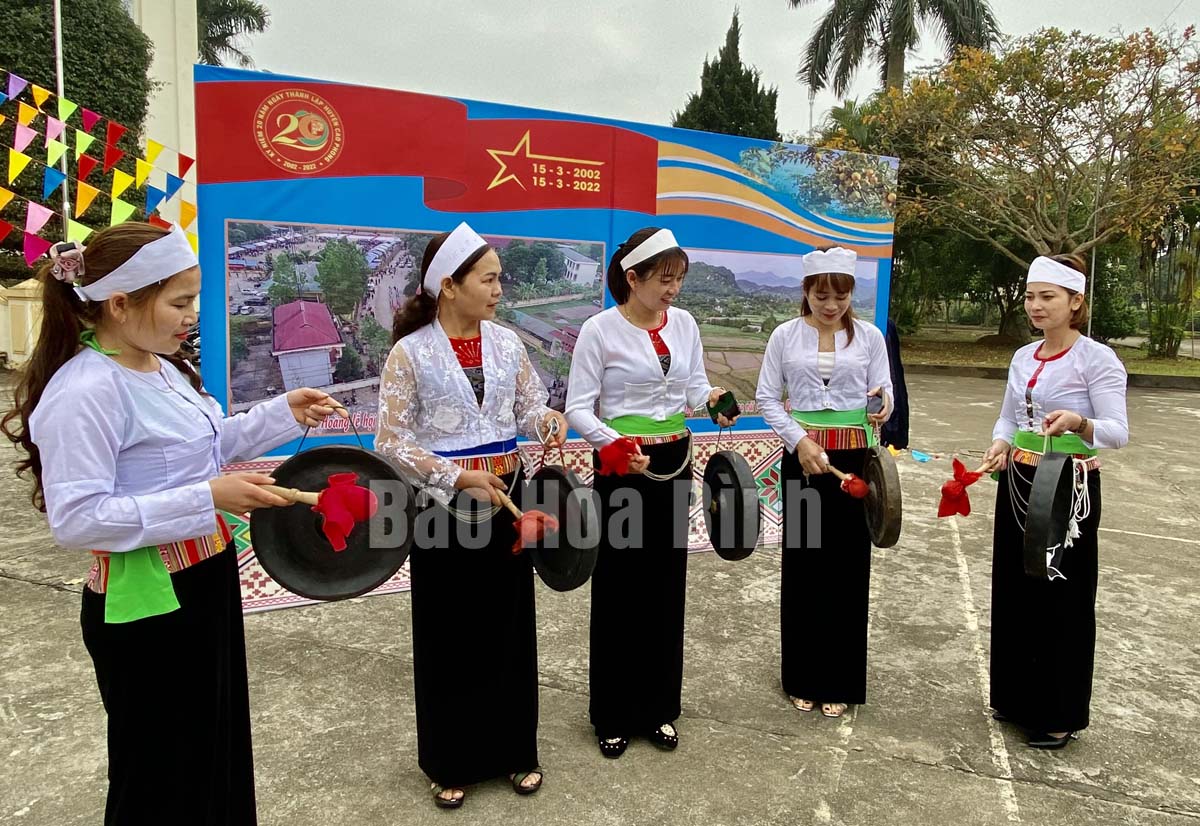



An art troupe of Quang Trong hamlet, Hop Phong commune (Cao Phong district) practices gongs to preserve and promote the cultural identity of the Muong ethnic group.
According to Mr. Pham Ngoc Nhat, head of the district's Department of Culture and Sports, the flow of modern life has put many traditional cultural values in danger of extinction. The beauty of stilt houses, costumes, customs and habits of the people is fading away with the effects of society modernity.
Being aware of the importance of preserving and promoting cultural values, the district developed a project on preserving and promoting cultural and sport identities of ethnic groups in the 2007 – 2010 period with a vision to 2015. There is a discernable focus on the work of preserving and promoting traditional cultural identity in Hoa Binh province.
The solutions the district are focused on include strengthening the leadership of the Party and state management over the work of preserving and promoting cultural values; increasing investment in facilities and funds for the cause of culture, sports, information and preserving and promoting cultural identity.
The district has also mobilised the citizens to participate in building and developing an advanced culture imbued with national identity.
In 2018, the Muong Thang festival in Dung Phong commune was restored on a district scale. Related branches are interested in organizing the teaching of Muong gongs, traditional singing, and music to the younger generation. The preservation and promotion of traditional cultural values is combined with the implementation of the movement "All people unite to build a cultural life”.
Following the efforts to preserve culture, in recent years, Cao Phong district has restored other typical traditional festivals, including Khanh pagoda festival (in Thach Yen commune), Quen Ang pagoda festival (in Hop Phong commune), water procession festival at Bong Lai temple, Muong princess festival at Bong Lai and Dong Son temple (in Cao Phong town).
The district has collected and preserved 1,600 Muong gongs, including 405 ancient gongs. Some hamlets and villages in Hop Phong, Thach Yen, Dung Phong and Binh Thanh communes retain the Muong stilt house architecture. In addition, the preservation of traditional costumes is paid due attention by encouraging people to wear them in local events. In some communes such as Thach Yen, Hop Phong, women still wear the Muong dress quite often in their daily lives. During celebrations or on festivals, cultural performances, wearing Muong ethnic costumes are encouraged.
In addition, the district actively preserves other typical cultural values, such as relics associated with the legend of Mount Coi flower garden in Hop Phong commune. They also recognize and preserve the historical monument of revolutionary hero Cu Chinh Lan in Binh Thanh commune and Bo temple relic in Thung Nai commune. The Cao Phong district established a district-level Mo Muong club with 35 members who are artisans dedicated to preserving and promoting the value of Mo Muong cultural heritage. Art troupes have developed widely.
The district is also implementing a project on preserving cultural heritage, building a space to preserve Mo Muong cultural heritage associated with tourism services in Hop Phong commune.
Communes and townships have been directed to implement a programme of conservation and promotion of traditional cultural values associated with tourism development. They have also been asked to pay attention to bringing the beauty and cultural identity into festivals to attract the attention of tourists./.